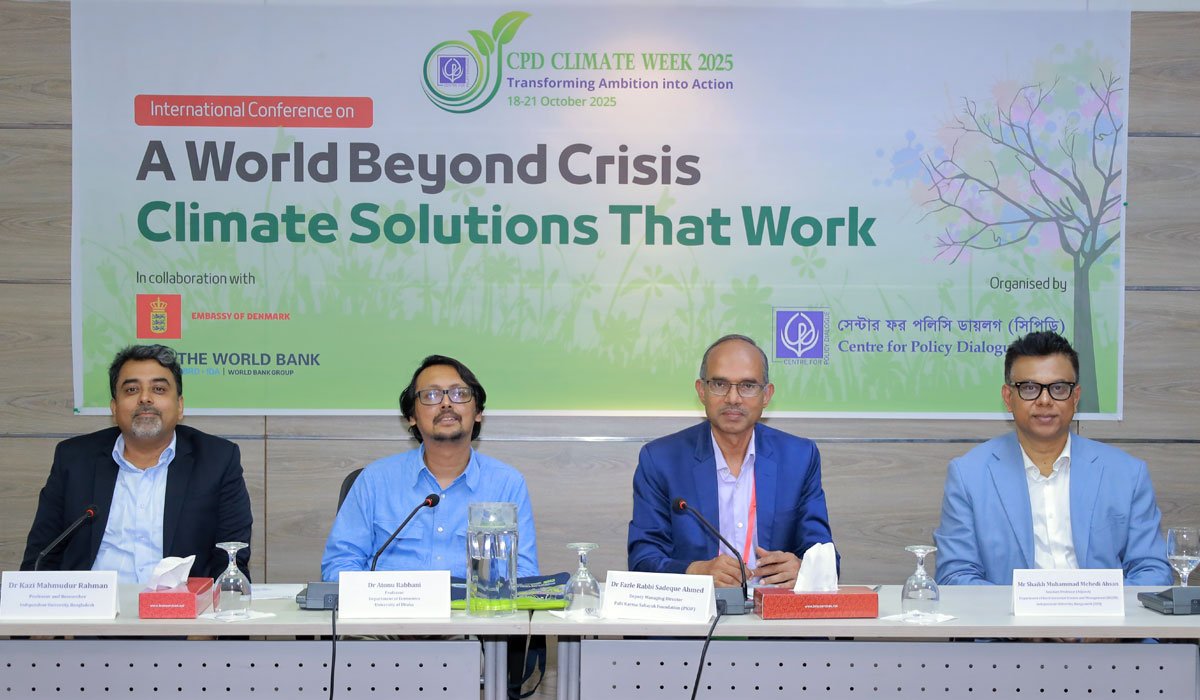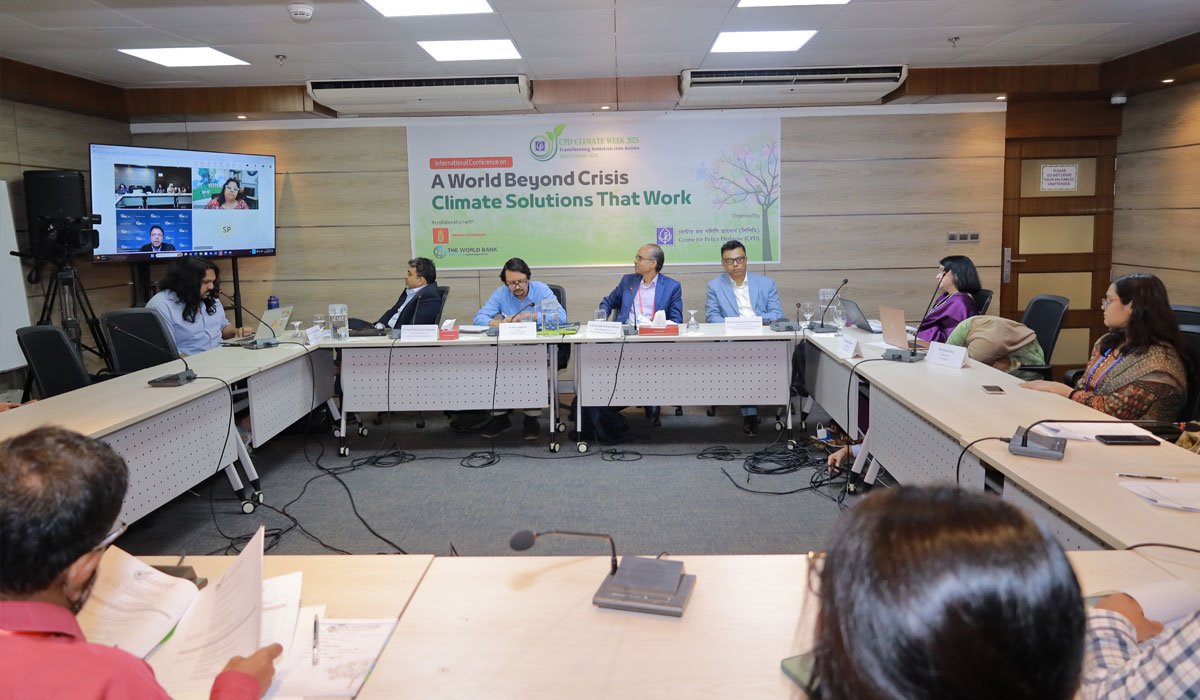
As countries move toward implementing their Nationally Determined Contributions (NDCs) 3.0, the challenge has shifted from ambition to action. For climate-vulnerable nations like Bangladesh, success depends on translating global pledges into measurable progress rooted in local realities.
This focus guided the session “Operationalising NDCs in Climate-Vulnerable Countries,” held on 18 October 2025 as part of the Conference on “A World Beyond Crisis: Climate Solutions That Work” during CPD Climate Week 2025, where experts from academia, government, and development organisations stressed the need for strong governance, equitable finance, and inclusive, data-driven implementation.

Dr Fazle Rabbi Sadeque Ahmed, Deputy Managing Director of PKSF, said the main challenge lies not in ambition but in “the quality of implementation and finance.” He called for better governance, domestic funding, and tax incentives to encourage industry-led emission cuts.
“NDC 2.0 was about setting goals — NDC 3.0 is about achieving them”, noted Dr Kazi Mahmudur Rahman of Independent University, Bangladesh, urging that adaptation be mainstreamed across all sectors and that the private sector be more actively engaged to make climate targets measurable and realistic.
Ms Sabrin Sultana of the Change Initiative highlighted finance as the weakest link, with Bangladesh pledging a 9 per cent emission cut by 2035. “Over-reliance on loans and unpredictable aid constrain progress,” she said, stressing the need for foreign investment, tax reform, and women’s participation.
From a legal perspective, Mr Bareesh Hasan Chowdhury of BELA said NDC 3.0 still lacks a roadmap for phasing out outdated technologies. He warned that “politicisation of high-emission sectors like transport hinders policy enforcement,” urging investment in green public transport and clear emission standards.

Economist Dr Atonu Rabbani of Dhaka University questioned data accuracy and ambition levels, noting that weak baselines dilute Bangladesh’s targets. He called for modernising the power grid, developing a carbon market, and promoting green innovation in urban and industrial sectors.
Mr Shaikh Muhammad Mehedi Ahsan of IUB said Bangladesh needs credible data and monitoring systems to verify progress. “We must localise targets, improve coordination, and make policies evidence-based,” he added.
Joining virtually, Dr Shailly Kedia of TERI, India, stressed linking NDCs with national budgets and promoting “green-responsive financing and private sector engagement.” Dr Muhammad Asif Iqbal of SPDC, Pakistan, said South Asia must improve monitoring and regional cooperation to overcome financing gaps.
Dr Ratnakar Adhikari of the Enhanced Integrated Framework (EIF), WTO, emphasised climate-linked trade and investment, citing Rwanda’s green recycling model and urging decentralised renewable energy and better tax systems.

Wrapping up, Dr Fahmida Khatun, Executive Director of CPD, said inclusivity must underpin all climate strategies. “We cannot claim progress if vulnerable communities remain excluded,” she noted.
🌎 Check out all session web posts and videos
- Inaugural Session | A World Beyond Crisis: Climate Solutions That Work
Web post | Video - Opening Plenary | Road to COP30: How Can National Interests Be Aligned with Global Climate Goals?
Web post | Video - Parallel Session 1 | Operationalising NDCs in Climate Vulnerable Countries
Web post | Video - Parallel Session 2 | Climate and Gender: Integrating Equity in Policies
Web post | Video - Parallel Session 3 | Carbon Pricing and Carbon Markets in Bangladesh
Web post | Video - Parallel Session 4 | Climate-smart Agriculture and Food Security
Web post | Video - Parallel Session 5 | Climate Finance, Landscape, Policy and Governance
Web post | Video - Parallel Session 6 | High Level Dialogue on Achieving Debt Sustainability in the Face of Climate Change
Web post | Video


